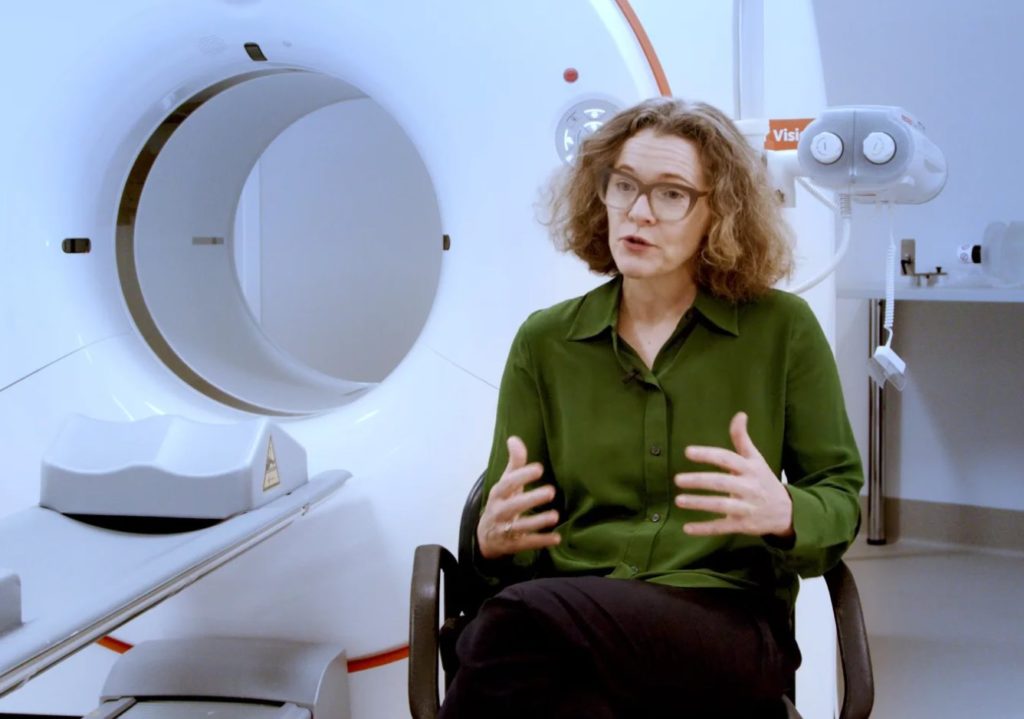New era in nuclear medicine
Precision medicine is the concept of targeting the right patient for the right treatment at the right time. ENZA-p is a clinical trial that aims to use new theranostic agents to allow more accurate prognostic decision making, and subsequently more effective personalised treatment with less side effects, for men confronting a potentially lethal condition (metastatic castrate resistant prostate cancer). When prostate cancer spreads (becomes metastatic), it often causes health problems and frequently shortens the lifespan of affected men.
A collection of promising new tablet treatments such as the potent hormone blocking enzalutamide/Xtandi®, prolongs the lives of men with metastatic prostate cancer. However, none of these treatments are curative.
Clinical trials are underway to test a new therapy that treats prostate cancer cells directly with radiotherapy (177Lutetium), which targets a protein on the cancer cell surface (prostate specific membrane antigen or PSMA). Early trials using this new treatment (Lu-PSMA) has shown that it is well tolerated and is effective in treating metastatic prostate cancer. Tests in the laboratory have shown that combining Lu-PSMA with potent hormone blockers, like enzalutamide, may work together to further improve prostate cancer treatment responses.

However, many questions remain. We do not yet know which men will benefit from the combination treatment, or at what stage this treatment should be offered to them. This study will hopefully address many of these questions, and in the process improve the standard of personalised medicine for men with metastatic prostate cancer.
The study also aims to answer the questions around whether men should receive these combination targeted treatments earlier, before they have chemotherapy, or to reduce toxicity. To achieve these goals, we plan to use the PSMA imaging and therapy agents in combination with enzalutamide in a randomised clinical trial in men who have not yet had chemotherapy. The study aims to show that treating men with metastatic castrate resistant prostate cancer with rational treatment combinations will improve treatment responses and delay the need for more toxic treatments. The concept of precision medicine can further be understood by understanding ways to best predict which men would benefit from the combined treatment, and how the cancer develops and becomes resistant to these treatments.
We believe that developing synergistic complementary non-toxic combinations of drugs that work better together earlier, and then targeting treatments to the men who will best respond, will offer the highest quality of life for the longest possible time.
